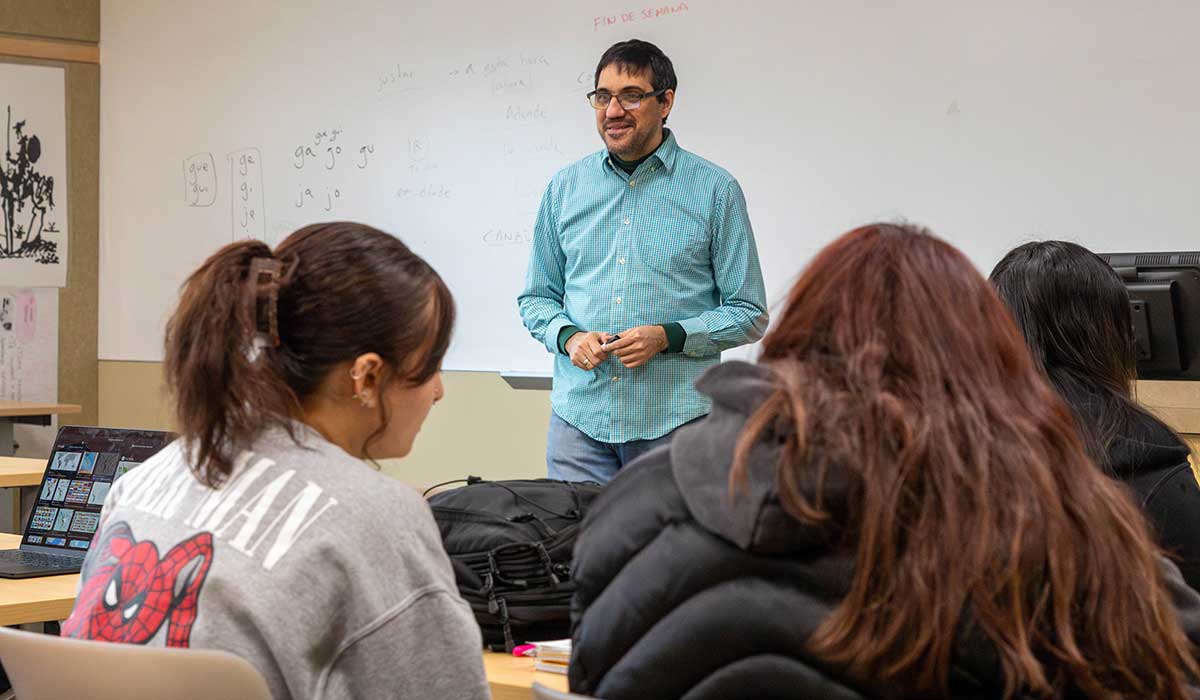Yakima Valley College has a long history of offering programs and classes that help build multicultural awareness and competencies, and Winter 2025 is no different. Whether you’re just starting to examine issues around diversity, equity and inclusion or you’re looking to build upon your knowledge base and widen your worldview, there’s a class for you.
Registration is under way for Winter Quarter 2025 classes and classes begin January 6. Read on for our list of classes with a cultural focus from YVC’s programs in American Indian and Indigenous Studies (AIIS), Anthropology (ANTH), Chican@ Studies (CHST) and Ethnic Studies (ETHS):
AIIS 209 Native American History to 1815: This course is an overview of Indigenous history in North America through 1815, examining major themes including colonialism, decolonization, treaty-making, federal Indian policy, genocide, resistance, tribal sovereignty and self-determination.
AIIS 145 U.S.-Indian Relations: This course provides a comprehensive overview of the unique legal and political status of American Indians and their relations with the U.S. government. U.S.-Indian Relations will describe and explain that status by surveying its historical origins and how it was affected by pertinent modern laws and contemporary issues, as well as examining how these connect to quality of life in the government-to-government relationships between Native nations and entities in the United States.
ANTH 240 Youth Subcultures: This course acquaints students with methodologies and models of analysis appropriate for studying youth subcultures. Focusing on the origins, histories and broader cultural impact of the mod, skinhead (both anti-racist and racist variants), hippie, punk and goth subcultures, particular attention is paid to the contention that the stylistic elements that give the subculture form represent a response to what is going on in the greater culture. The course also explores how the meaning behind the style can change over time and via movement to new geographic and cultural locations and deals with issues concerning intergenerational conflict, identity, class-based resistance, gender and race.
ANTH& 205 Biological Anthropology: This class offers an introduction to the biological development of Homo sapiens. It explores our place in nature: studying our relationship to other primates, our biological and cultural adaptations, and development through time. Attention is given to the principles and mechanics of evolution and to the methods of physical/biological anthropology.
ANTH& 206 Cultural Anthropology: This course examines human societies from a cross-cultural perspective. Special attention is paid to the form and function of major cultural institutions, including subsistence and economic systems, marriage, family and kinship systems, religion and magic, and myth and ritual. Students will also explore questions concerning status, gender, basic personality development, language, reality construction, the mechanisms and effects of culture change, the importance of cultural relativism and the nature of anthropological investigation.
CHST 112 Chican@/x Experience in Contemporary Society: This course examines contemporary Chican@/x experiences in the U.S. within socioeconomic, political, cultural and historical contexts. The purpose of the course is to provide students with a broader knowledge of the forces that shape the lives of Mexican and other Latin@/x descended peoples in U.S. society.
ETHS 101 American Ethnic Minorities: This course examines the social, political and economic forces that have shaped the historic experience of diverse ethnic communities in the United States. An interdisciplinary and comparative approach to studying ethnic and race relations and the intersectionality of race, gender, class and sexuality is utilized.
View the full Winter 2025 class schedule.
No matter where you’re going, YVC is the place to start! With many academic options, you can earn the training, degree or certificate you need to get a great job, earn credits that transfer to a four-year university or just to brush up on skills in an area that interests you. YVC’s open-door policy enables all community members to enroll without regard for their past educational record.
Are you a first-time college student or transferring from another school and planning to earn a degree or certificate? New, transfer and returning degree-seeking students can visit YVC’s admissions website to apply and get started.
Are you interested in enrolling in a class or two for personal enrichment, professional development or just plain fun? Non-degree seeking students, those not intending to obtain a degree or certificate, are welcome to enroll in courses that total 11 credits or less per quarter. Non-degree seeking students are not eligible for financial aid. Registration begins December 30 for part-time, non-degree/certificate-seeking students for Winter 2025.
Senior citizens, 60 years of age or older, who are Washington state residents can take advantage of the Gold Card Program. This program allows seniors to attend state supported classes at a reduced cost on a space-available basis. Gold Card participants may enroll on the third day of the quarter or when the class has met at least once, whichever is later.
YVC is a public institution of higher education dedicated to strengthening our communities by providing opportunities for personal enrichment, economic mobility and sociocultural engagement. Founded in 1928, YVC serves all students holistically, supports all students’ learning goals, and fosters achievement within career and educational pathways. As a federally designated Hispanic-serving Institution residing on the traditional homelands of the 14 Confederated Tribes and Bands of the Yakama Nation, YVC cultivates equity and a culture of innovative and inclusive teaching and learning.
A new quarter starts soon! Take the first step today! Visit yvcc.edu/apply to get started.
